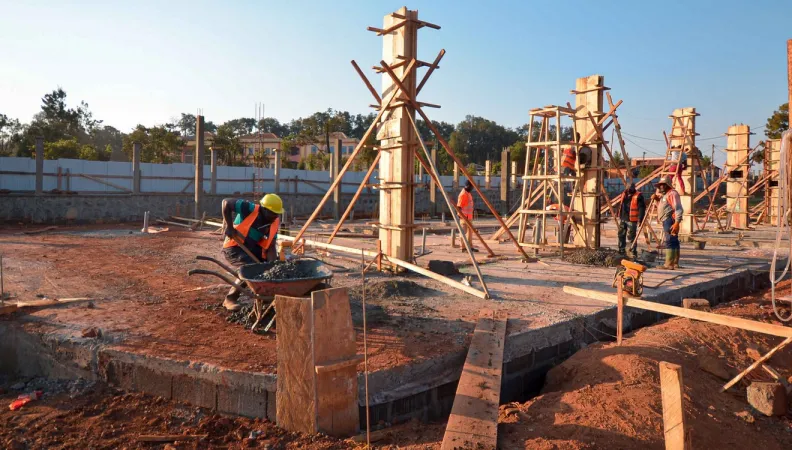Share the page
Using Monitoring and Evaluation for more effective Public Policy
Published on

Monitoring and evaluation at AFD is changing radically to become a genuine decision-making tool. Using new and innovative approaches to data collection and analysis, AFD is among a small but growing group of organizations bolstering their commitment to closer monitoring of their activities, to ensure greater transparency and effectiveness, both in policy-making and on the ground.
Nathalie Le Denmat
|
Evaluations Report 2023
Our work in photos and figures
Find out more
|
Nathalie Le Denmat was Director of AFD's Evaluation and Learning Department until August 2023.
AFD is working on a new monitoring and evaluation policy. Why?
Nathalie Le Denmat: Our guiding principle is that monitoring and evaluation should be as useful as possible, for both operational and strategic decisions.
By providing development stakeholders with relevant data and analyses, evaluation enables us to maximize the effectiveness of the projects we support and, ultimately, to meet people's needs as effectively as possible.
Evaluations show us that our projects are relevant and responsive, and globally aligned with people's needs, but we need to improve our ability to report on their performance. We hope that maximizing this process will help us meet this challenge.
See also: Evaluations Report 2023
How will you implement these new strategic principles on the ground?
The strategic monitoring and evaluation plan we are building defines values and sets out ambitions that are shared by the three entities of the AFD Group – AFD, Proparco as well as Expertise France, which joined us in January 2022 - while respecting their specific characteristics.
We have thus pinpointed the areas for improvement in the form of roadmaps tailored to the practices of each entity.
See also: Protecting Madagascar's forests better through evaluation
How can evaluation better inform decision-making at AFD?
For the evaluation to play its full role as a decision-making tool, we need to reinforce the ownership of its conclusions and ensure that the recommendations are taken into account at all levels, from operational staff in the field to administrators, and even disseminate our conclusions more widely to members of parliament.
This is why we are moving towards a form of governance that includes a wide range of actors, from directors and government representatives to experts from a variety of disciplines. We are also putting in place specific measures to improve follow-up of the recommendations resulting from the evaluation, for example by making the responses of operational staff and project owners to the recommendations systematic.
How is AFD working to promote the evaluation culture among its partners in emerging and developing countries?
AFD relies on its partners' involvement. We systematically propose that they co-build evaluations by participating in drafting the evaluation questions and methods. Nevertheless, there is still room for improvement on both sides in terms of appropriating the culture of evaluation. And we also have some very fine experiences of successful collaboration, which can go so far as to foster public policy dialogue.
Watch the video: Geospatial Technologies for Development
Satellite data: will it revolutionize things?
Geospatial data represents a promising tool for monitoring and evaluating projects in a wide variety of areas, ranging from agricultural yields and water resource management to urban sprawl.
AFD used it for the first time in 2018 to assess the effects of forest management methods on deforestation in the Congo Basin. Since then, it has entered into a partnership with the French Space Agency to explore the possibility of extending the use of this tool to all phases of a project, from its design and monitoring by local project management teams. These pilot experiments have proved promising, as has this partnership.
